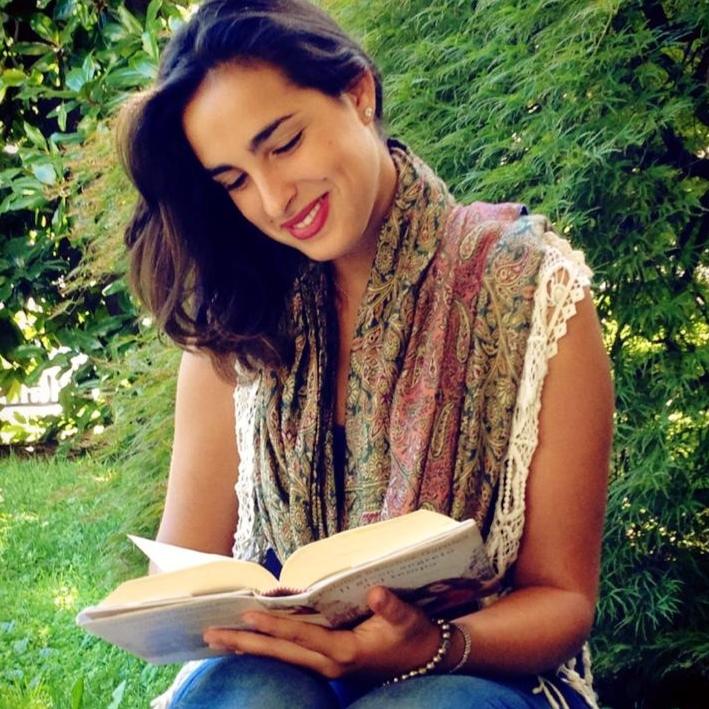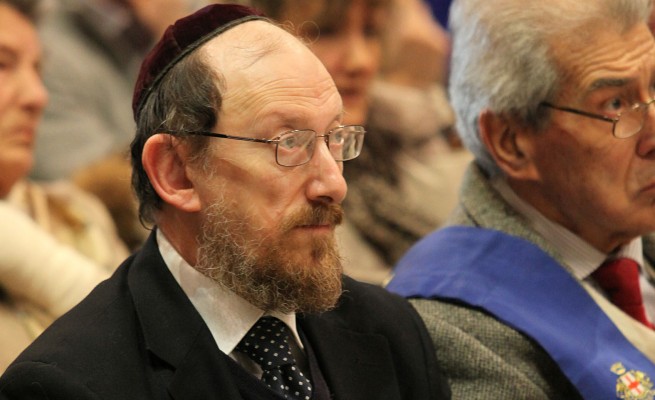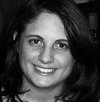 |
Self-Hating
|
 by Guido Vitale* by Guido Vitale*
An Italian journalist belonging to Catholic right-wing circles has
published a book denouncing self-hating Jews. Self-hatred, he believes,
is expressed when arguments and justifications - in this case of the
Jews - are not supported energetically enough, and when others’ views
are over-emphasized. The result resembles a blacklist which includes
many prominent Jewish intellectuals, artists and journalists.
The issue of exaggerated self-critique obviously exists, and hysterical
or excessive criticisms of Israeli governments should be firmly
rejected. However, it is essential to maintain a healthy balance and to
respect freedom of expression and creativity. Those who want to isolate
dissenters cannot be true friends of the Jewish world, and have not
understood what Jews represent or why their existence is so important.
This sad book presages a chilling world, which allows no space for
constructive debate or culture, but only uniform obedience. A world
where being Jewish is not worthwhile, and where Jews themselves - after
having been transformed into single-minded foot soldiers - no longer
have a reason to exist and have no meaningful future.
*Guido Vitale is
the editor-in-chief of
Pagine Ebraiche.
|
| |
 |
Italian Word of the Week:
DIALOGO
|
by Daniela
Gross
In Italian the word “dialogo”, as you easily can guess, means
“dialogue”. However, to really understand what it means for the Italian
Jewry you should add the word “interreligioso – interfaith”. The
dialogue among the religions is a good practice at every latitude, but
in Italy it implies to deal with the Church and with the catholic
majority, not an easy job in a country where thOSE relations have been
so troubled and often very painful for centuries.
A new season in the interfaith dialogue was opened, more than fifty
years ago, by Pope John XXIII and the Second Vatican Council, whose
declaration “Nostra Aetate” (in Latin “our age”), the document approved
in regard to the relations with non-Christian religions, marked an
authentic turning point.
Twenty years later Pope John Paul II gives a new boost to the
“dialogo”. He was the first pope to visit Auschwitz, in 1979, and on
April 13th, 1986 he visited the Great Synagogue in Rome: The first
official papal visit ever made to a synagogue, a symbolic and important
event. John Paul II was received by Rabbi Elio Toaff, the Chief Rabbi
of the Jewish Community of Rome and during the ceremony noted the
Christianity’s unique bond with Judaism, pronouncing the famous
sentence “You are our beloved brothers ... you are our elder brothers".
In 1993 he established formal diplomatic relations between the Holy See
and the State of Israel, acknowledging its centrality to Jewish life.
|
| |
|
|

NEWS
- Israeli Ambassador to the Holy See
'Taking
Dialogue a Step Forward'
 By
Rossella Tercatin By
Rossella Tercatin
“Year 2014 is important for a number of reasons: the upcoming visit to
Israel of pope Francis, the twentieth anniversary of the establishment
of full diplomatic relations between the State of Israel and the Holy
See, the property and fiscal issues related agreement which could be
reached soon”.
Only few days before Jorge Bergoglio begins his visit to Israel, Zion
Evrony, the Israeli ambassador to the Holy See, speaks about what
Israelis and Jews all over the world can expect from this crucial
event, and in general from this Pope, in the perspective of the
political relation between the Jewish State and the Vatican, but also
in the perspective of the interfaith dialogue and of the approach to
Judaism.
Evrony was joined by the prominent Jewish historian Anna Foa in a
public conversation coordinated by Rabbi Roberto Della Rocca, director
of the Department of Education and Culture of the Union of Italian
Jewish Communities (UCEI) and director of the Jewish cultural
association Kesher, which has organized the event that took place at
the Jewish School of Milan.
Read
more
|
Out
of the Boot
Micol:
“Loving Manchester, Missing Gelato”
 By
Simone Somekh* By
Simone Somekh*
Every month, Pagine
Ebraiche International brings to you an exciting story from one of the
many Jewish Italians abroad, young hopefuls that left their native
country for either professional or academic purposes. These interesting
profiles might have left Italy to broaden their horizons, nevertheless
they still feel very Italian, and try to bring that unique spirit with
them wherever they go.
It’s yet another rainy day in Manchester, but – as Micol always says –
you can easily get used to this melancholic weather as long as
you have friends to hang out with and lots of studying to do.
Micol Tedeschi, 20, is a first year student of Genetics at the
University of Manchester. She moved to England less than a year ago,
soon after completing her high school diploma in Italy.
Born and raised in Milan, Micol decided to leave her native country for
several reasons: “As much as I love the people I grew up with in Milan,
the Jewish community is too small, and most of my friends left” she
says, adding that neither her nor her parents see a future in Italy. “I
love travelling and meeting new people – it really broadens your mind”.
After a long decision process, she decided to study Genetics, a course
of study that does not exist in Milan.
*Simone Somekh is a
student at Bar-Ilan University, Israel, and writes as a freelancer for
the Jewish Italian press.
Shirly Piperno, fashion
styling and communication student at Istituto Marangoni, London,
contributed reporting.
Read
more
|
food
After
a Roman Yom Kippur Triglie con Uvette e Pinoli
 By
Benedetta Guetta* By
Benedetta Guetta*
The
combination of pine nuts, raisins and vinegar probably dates back to
the Middle Ages: most of the oldest Italian cookbooks feature a vast
collection of sweet-and-sour recipes, in which the sourness of vinegar
is balanced by the sweetness of ground raisins, prunes or dates; our
match of fish, pine nuts, raisins and vinegar, in particular, must have
arrived in Rome through Sicily and probably relates to the Arab,
Mediterranean culinary culture that influenced our cooking so much in
the past.
In Italy, we prepare this dish using local “triglie”, red mullets, but
mullet is sometimes difficult to find, so for example in the United
States feel free to use red snapper or a similar fish as an alternative.
*Benedetta Guetta runs
the blog Labna.it
Read
more
|


| Sanctity,
Individuality and the Space of Social Justice |

By Yaakov Mascetti*
A couple of weeks ago, Jonathan, a good friend of mine and one of the
most important psychologists in Israel, called with a rather last
minute request: "Yaakov, would you be so kind to give the
congregational speech for my daughter Hadas' bat mitzvah? We'd like you
to be the one to present her with the shul's present and
congratulations." Of course, what immediately ensued was an alarmingly
variegated cocktail of flattery, panic and synapses: "What am I going
to talk about?"
I'm an academic. Teaching and writing on the European literature of the
Renaissance, Baroque and Enlightenment periods is what I do. So all I
do is give 90-minute lectures to students, and sit in the National
Library in Jerusalem writing on poetry of the 17th century. Giving what
is commonly known as a dvar Torah is not exactly my cup of tea… So yes,
panic: check.
Now once the level of adrenaline was under control again, I managed to
open a chumash Vaykra (Leviticus, one of the five volumes of the
Pentateuch) and there it was: Parashat Kedoshim. Yes, the weekly
reading was exactly the same as the one I had so voraciously learned
the very first day of Yeshiva back in 1997, when I left my agricultural
routine in Sde Eliyahu, a kibbutz in Northern Israel, and went to
invest some quality time with tradition in Shilo. I sat, on that first
morning, in the Bet Midrash and read all that I could find on the
concept of kedushah, sanctity. What is holy for Judaism? Who is holy?
And how are we to relate to this quality (metaphysical? Material?)
called "kedushah"?
*Ph.D., Department of
Comparative Literature, Bar Ilan University
Read
more
|
|
|
Follow
us on  
This newsletter is published under difficult conditions. The editors of
this newsletter are Italian journalists whose native language is
Italian. They are willing to offer their energy and their skills to
give international readers the opportunity of learning more about the
Italian Jewish world, its values, its culture and its traditions.
In spite of all our efforts to avoid this, readers may find an
occasional language mistake. We count on your understanding and on
your help and advice to correct these mistakes and improve our
publication.
Pagine Ebraiche International Edition is published by the Union of
Italian Jewish Communities (UCEI). UCEI publications encourage an
understanding of the Jewish world and the debate within it. The
articles and opinions published by Pagine Ebraiche International
Edition, unless expressly stated otherwise, cannot be interpreted as
the official position of UCEI, but only as the self-expression of the
people who sign them, offering their comments to UCEI publications.
Readers who are interested in making their own contribution should
email us at desk@ucei.it
You received this newsletter because you authorized UCEI to contact
you. If you would like to remove your email address from our list, or
if you would like to subscribe using a new email address, please send a
blank email to desk@ucei.it
stating "unsubscribe" or "subscribe" in the subject field.
© UCEI - All rights reserved - The articles may only be reproduced
after obtaining the written permission of the editor-in-chief. Pagine
Ebraiche - Reg Rome Court 199/2009 – Editor in Chief: Guido Vitale -
Managing Editor: Daniela Gross.
Special thanks to: Francesco Moises Bassano, Susanna Barki, Monica
Bizzio, Benedetta Guetta, Daniel Leisawitz,
Gadi Luzzatto Voghera, Yaakov Mascetti, Francesca Matalon,
Giovanni Montenero, Elèna Mortara, Shirley Piperno,
Giandomenico Pozzi, Daniel Reichel, Adam
Smulevich, Simone Somekh,
Rossella Tercatin, Ada Treves.
Questo notiziario è realizzato in
condizioni di particolare difficoltà. I redattori di questo notiziario
sono giornalisti italiani di madrelingua italiana. Mettono a
disposizione le loro energie e le loro competenze per raccontare in
lingua inglese l'ebraismo italiano, i suoi valori, la sua cultura e i
suoi valori. Nonostante il nostro impegno il lettore potrebbe trovare
errori e imperfezioni nell'utilizzo del linguaggio che faremo del
nostro meglio per evitare. Contiamo sulla vostra comprensione e
soprattutto sul vostro aiuto e sul vostro consiglio per correggere gli
errori e migliorare.
Pagine Ebraiche International Edition è una pubblicazione edita
dall'Unione delle Comunità Ebraiche Italiane. L'UCEI sviluppa mezzi di
comunicazione che incoraggiano la conoscenza e il confronto delle
realtà ebraiche. Gli articoli e i commenti pubblicati, a meno che non
sia espressamente indicato il contrario, non possono essere intesi come
una presa di posizione ufficiale, ma solo come la autonoma espressione
delle persone che li firmano e che si sono rese gratuitamente
disponibili. Gli utenti che fossero interessati a offrire un proprio
contributo possono rivolgersi all'indirizzo desk@ucei.it
Avete ricevuto questo messaggio perché avete trasmesso a Ucei
l'autorizzazione a comunicare con voi. Se non desiderate ricevere
ulteriori comunicazioni o se volete comunicare un nuovo indirizzo
email, scrivete a: desk@ucei.it
indicando nell'oggetto del messaggio "cancella" o "modifica".
© UCEI - Tutti i diritti riservati - I testi possono essere riprodotti
solo dopo aver ottenuto l'autorizzazione scritta della Direzione.
Pagine Ebraiche International Edition - notiziario dell'ebraismo
italiano - Reg. Tribunale di Roma 199/2009 - direttore responsabile:
Guido Vitale - Coordinamento: Daniela Gross.
Realizzato con il contributo di: Francesco Moises
Bassano, Susanna Barki, Monica
Bizzio, Benedetta Guetta, Daniel Leisawitz,
Gadi Luzzatto Voghera, Yaakov Mascetti, Francesca Matalon,
Giovanni Montenero, Elèna Mortara, Shirley Piperno,
Giandomenico Pozzi, Daniel Reichel, Adam
Smulevich, Simone Somekh,
Rossella Tercatin, Ada Treves.
|















